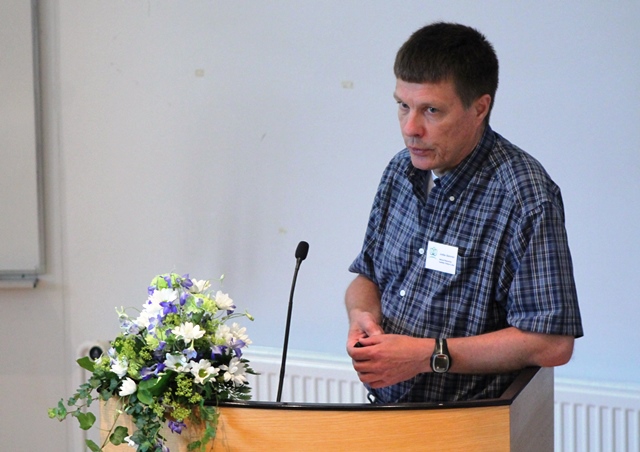The first track of the four tracks in the international NJF conference was concentrating on cover crops and their role in weed management. One of the presentations in the morning session
Cropping of cover crops includes several factors to be considered when making decisions: which species or mixtures to use, seed rates, sowing time and target weed species, to mention a few. The main purpose of these decisions is to replace harmful weed species with gentle cover crops either during, after or between cropping periods. Cover crops are useful tools in Intergrated weed management (IWM).
Potential of cover crops for weed management in organic cropping is a research issue belonging to a larger PROVIDA project with 6 countries around the Baltic Sea. Researcher Jukka Salonen highlighted the current results in Finnish context.
In Finland the crop rotations are cereal-dominated, also in conventional farming. In the field experiments, some cover crop mixtures responded well in spring barley. In relation to growth potential of cover crops, some carefulness with Italian ryegrass and with tall-growing clover species is recommended.
- Delayed sowing of more vigorous cover crops like Italian ryegrass will help, Salonen suggests.
According to the preliminary results, cover crops are too slow against spring-emerging and tall-growing annual weeds in spring cereals. However, they suppress weed growth in late summer and after harvest.Long-term effects will be assessed in the on-going field experiments.
- Red clover, Alsike clover and white clover are most promising in Northern conditions, Salonen states.
Based on the promising results in Finland, farmers are encouraged to sow cover crops also in winter cereals early in the spring.
The resent results on Potential of cover crops for weed management in organic cropping were presented in international organic conference held in Mikkeli 19th– 21st of June, 2017. The conference gathered over 90 researchers from 13 countries to discuss the current research topics in organic farming sector.
- More information: www.njf.nu/seminars/mikkeli2017
- The conference material will be published in Organic ePrints: www.orgprints.org
